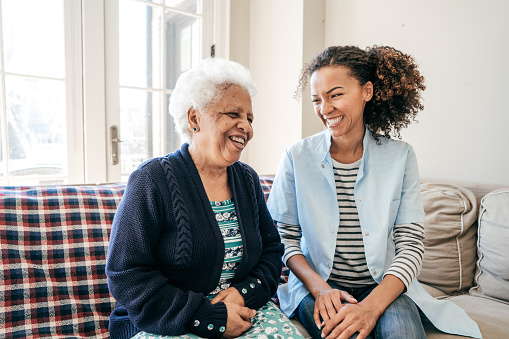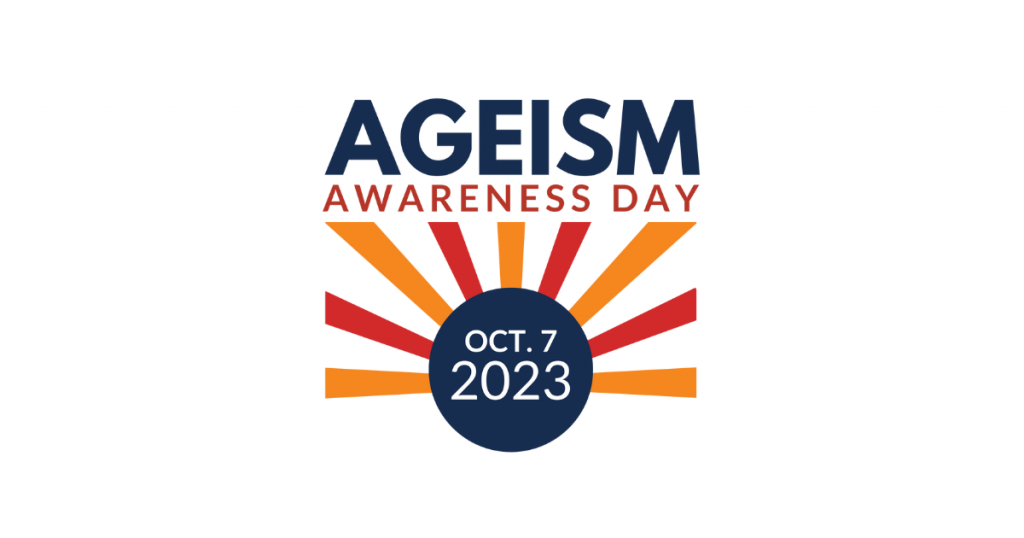October 7 is Ageism Awareness Day. It’s an important day to work on shifting our attitudes toward older age and older people, as well as draw attention to the existence and impact of ageism in our society. The 60+ population is growing and is predicted to continue growing.

Approximately 1 in 10 Americans ages 60 and older have experienced some form of elder abuse
Ageism is one of the most widespread and socially accepted forms of prejudice. The World Health Organization defines ageism as “the stereotypes (how we think), prejudices (how we feel) and discrimination (how we act) towards others or oneself based on age.” We can work on becoming aware of any ageist attitudes, stereotypes, or other biases we may have.
The UN estimates that half of people are ageist, which means many of us have biases about aging and older adults that we need to recognize and change. Evidence shows ageism is widespread in society and can be found everywhere, from our workplaces and health systems to stereotypes we see on TV, in advertising, and in other media.
Although ageism is universal, people do not always take it as seriously as other forms of inequity. Ageism intersects and exacerbates all the other “isms,” including racism, sexism, and ableism. Multiple intersecting forms of bias compound disadvantage and worsen the effects of ageism on individuals’ health and well-being.
Ageism exacerbates the issue of Intimate Partner Violence in Later Life (IPVILL). IPVILL is the physical, financial, sexual, and/or emotional abuse of an individual aged 60 and older by a current or former intimate partner, spouse, or family member. IPVILL is related to elder abuse. Elder abuse is a broader term encompassing IPVILL, exploitation, abandonment, and neglect of older individuals.
Approximately 1 in 10 Americans ages 60 and older have experienced some form of elder abuse, but only 1 in 24 cases are reported to authorities. In about 60% of elder abuse and neglect incidences, the perpetrator is a family member.
What can you do this Ageism Awareness Day to make small, positive changes?
- Combat assumptions & challenge ageism: question the assumptions or stereotypes you might have about older adults
- Learn more: read up about issues faced by the 60+ population and how you might help
- Increase understanding and accessibility at work: request staff training to support working with the 60+ population and update program literature to be inclusive of and accessible for older adults
Additional Resources
- American Society on Aging
- Understanding Abuse in Later Life
- Contact Lindy Keefe, Training & Technical Assistance Specialist at PCADV, for Intimate Partner Violence in Later Life (IPVILL) Training and Techincal Assistance Specialist for more information, resources, and training requests
